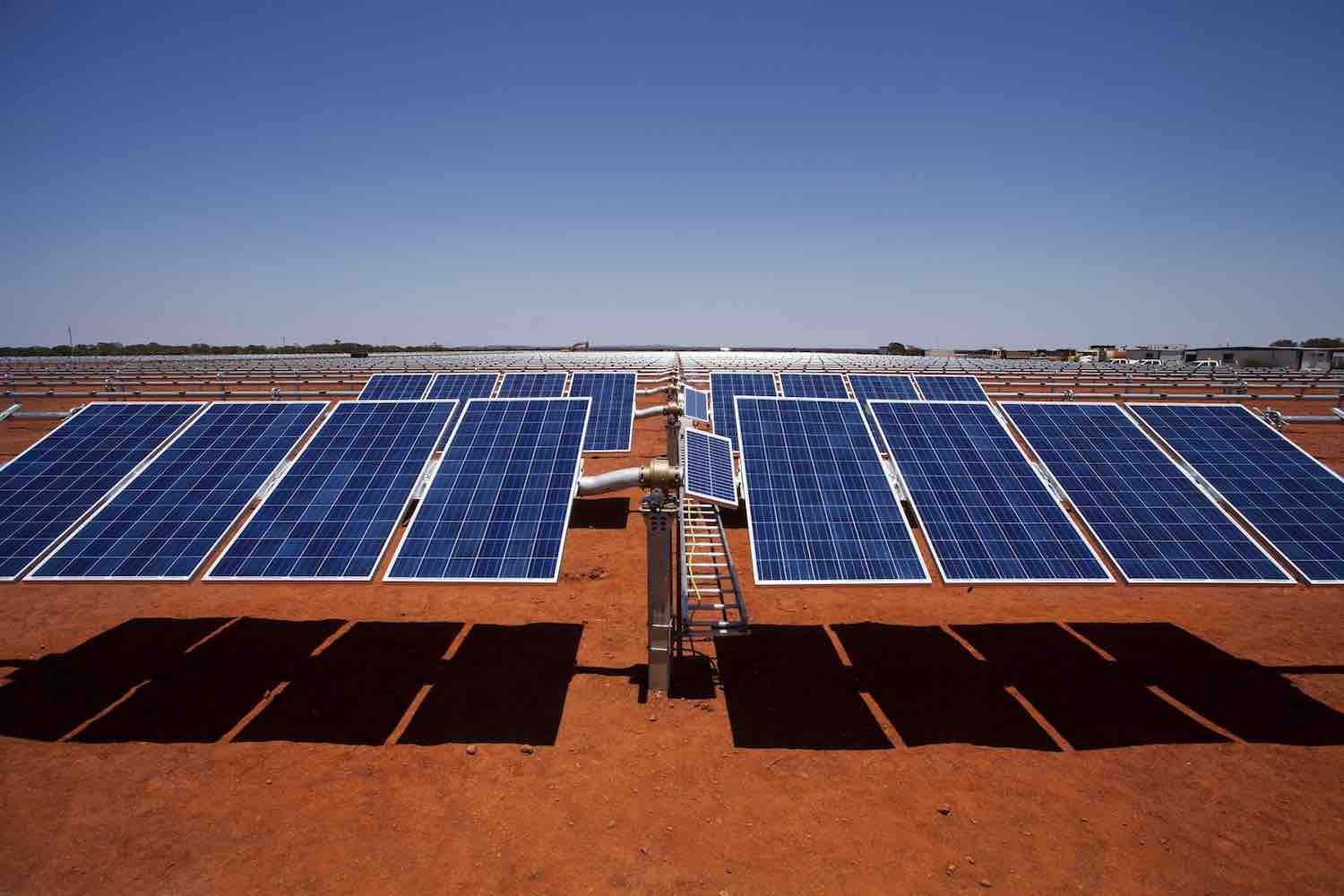
Rio Tinto has secured a clean energy supply for its three Gladstone alumina assets, inking a 25-year power purchase agreement (PPA) for 100% of the juice generated at the Upper Calliope solar farm. The 1.1 gigawatt Upper Calliope project will be the primary power source for Rio Tinto’s assets in Gladstone (QLD), including the Boyne aluminium smelter, the Yarwun alumina refinery, and the Queensland alumina refinery.
Pending development and grid connection approvals, European Energy will construct and operate the plant at a site approximately 50 kilometres southwest of Gladstone, the region’s vital industrial and port hub. Rio hopes that once activated, Upper Calliope will reduce the miners’ operating carbon emissions by 1.8 million tonnes per year.
The company spoke about the project’s ability to introduce more renewable power into Gladstone while taking a significant step towards its climate goal of halving global Scope 1 and 2 carbon emissions by the decade’s end. Rio Tinto’s CEO, Jakob Stausholm, stated, “The agreement is an essential first step in our efforts to repower their Gladstone operations and demonstrates our commitment to sustaining a renewable industry in central Queensland.”
Construction of the Upper Calliope plant is expected to begin in 2025-26 and aims to provide five per cent of Queensland’s current electricity demand. During construction, the plant will provide employment to 1000 people and support 100 direct and indirect jobs when operational.
Fortescue Metals shipped 48.7 million tonnes (Mt) of iron ore in the December 2023 quarter, marking a six per cent increase from the previous. The company has now dispatched 94.6Mt in shipments during the first half of the 2023-24 financial year (FY24), its second-highest first half on record.
The figure was bolstered by Fortescue’s high-grade Iron Bridge magnetite project, with a second magnetite shipment made during the quarter. Fortescue achieved the bumper iron results while continuing to progress towards its decarbonisation goals, fielding three electric excavators to the Pilbara during the period.
The all-electric excavator is the first in Australia’s mining industry, connected to a 6.6kV substation and over two kilometres of high-voltage cable. CEO Dino Otranto spoke on the Fe export result, stating, “We achieved this while continuing to grow our green technology, energy and metals businesses, keeping costs low and maintaining our safety performance.”
“Demand for Fortescue’s suite of iron ore products remains strong, and our entry into the higher-grade market segment through Iron Bridge has been well received.”
Guidance for FY24 total iron ore shipments remains unaltered at 192-197Mt. The Belinga project in Gabon also supported the quarterly result, which shipped its first product in December.
Wyloo has temporarily closed down three nickel mines, and BHP has halted processing operations in Kambalda in response to a slump in nickel prices in Australia. The Cassini, Long and Durkin nickel mines are Wyloo’s affected operations and are in a temporary shutdown.
Other nickel miners, including Chalice Mining, First Quantum Minerals, IGO, and Panoramic Resources, have also been impacted. The Association of Mining and Exploration Companies (AMEC) has called on the Federal Government to support the nickel sector.
AMEC’s acting CEO, Neil van Drunen, said, “Some government intervention to incentivise downstream processing should be considered.”
“If we continue to see the current downturn in nickel and lithium prices, the government should consider all options to reassure the sector, including potential royalty relief.
AMEC has proposed a 10% production tax credit for critical minerals producers to support Australia’s critical minerals sector. The credit would make Australia 10% more competitive for downstream processing.
Wyloo CEO Luca Giacovazzi believes that a 10% production tax credit is one part of the solution, along with the revision of the royalties scheme and access to funding support for capital investment. AMEC will appear at a minerals-focused roundtable with Federal Resources Minister Madeleine King and representatives from BHP, Glencore, IGO and Wyloo on January 25th.
Dust suppression is a critical issue in the world of mining and resources.
Learn more about GRT’s industry-leading and IoT-connected SMART Dosing Units, and discover how we’re driving better dust suppression solutions for all!
If you’d like to talk with an expert, simply contact us!
Your feedback is important to us.
If you enjoyed reading this Global Road Technology industry update and found it informative, please let us know by leaving a REVIEW.
References:
Are environmental regulations, health and safety concerns or potential profit loss a concern right now?
Contact Us Now